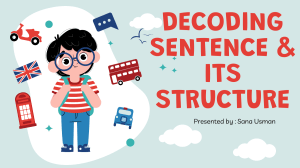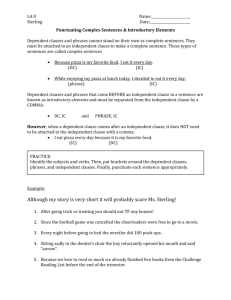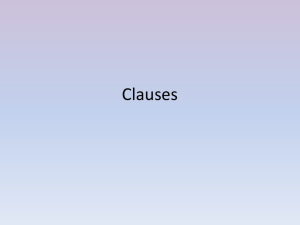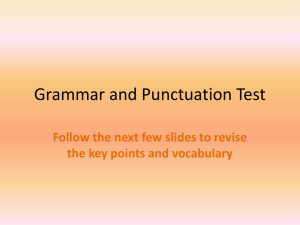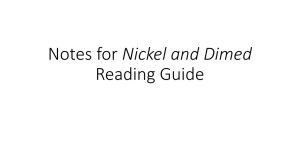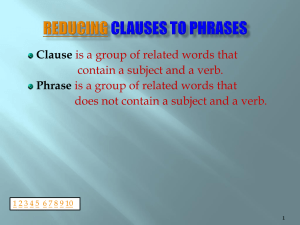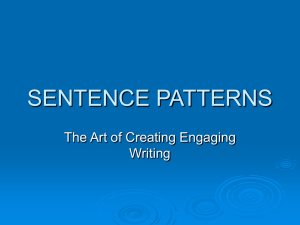Sentence Structure - Napa Valley College
advertisement
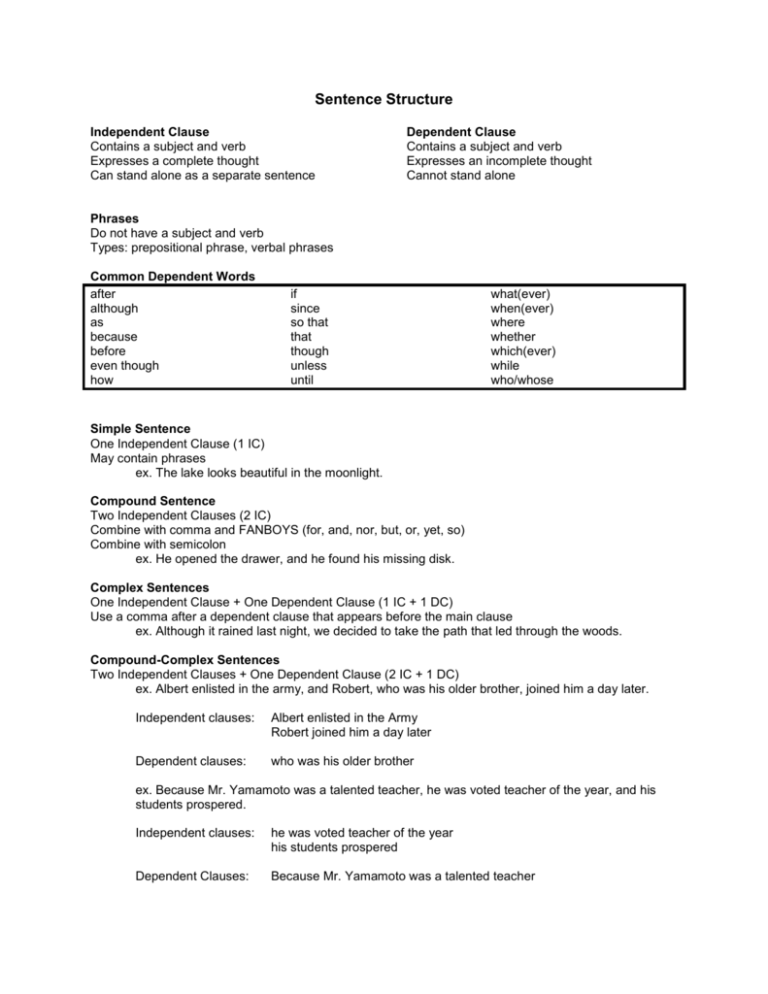
Sentence Structure Independent Clause Contains a subject and verb Expresses a complete thought Can stand alone as a separate sentence Dependent Clause Contains a subject and verb Expresses an incomplete thought Cannot stand alone Phrases Do not have a subject and verb Types: prepositional phrase, verbal phrases Common Dependent Words after although as because before even though how if since so that that though unless until what(ever) when(ever) where whether which(ever) while who/whose Simple Sentence One Independent Clause (1 IC) May contain phrases ex. The lake looks beautiful in the moonlight. Compound Sentence Two Independent Clauses (2 IC) Combine with comma and FANBOYS (for, and, nor, but, or, yet, so) Combine with semicolon ex. He opened the drawer, and he found his missing disk. Complex Sentences One Independent Clause + One Dependent Clause (1 IC + 1 DC) Use a comma after a dependent clause that appears before the main clause ex. Although it rained last night, we decided to take the path that led through the woods. Compound-Complex Sentences Two Independent Clauses + One Dependent Clause (2 IC + 1 DC) ex. Albert enlisted in the army, and Robert, who was his older brother, joined him a day later. Independent clauses: Albert enlisted in the Army Robert joined him a day later Dependent clauses: who was his older brother ex. Because Mr. Yamamoto was a talented teacher, he was voted teacher of the year, and his students prospered. Independent clauses: he was voted teacher of the year his students prospered Dependent Clauses: Because Mr. Yamamoto was a talented teacher


